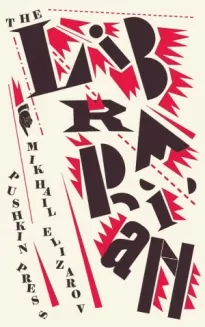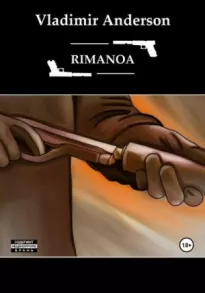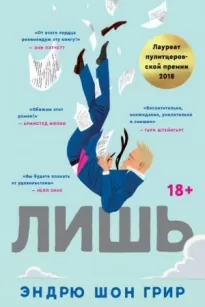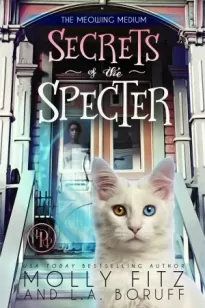The Librarian

- Автор: Михаил Елизаров
- Жанр: Современная проза / Социальная фантастика
- Дата выхода: 2015
Читать книгу "The Librarian"
THE LIBRARIAN
I WON’T REPEAT the experience of my false visions. The childhood tossed to me could easily have been mine. But that’s not the most important thing. More thrilling even than the activation of the false memory was its aftertaste. The Book seemed to have opened up an artesian well, and a torrent of forgotten words, sounds, colours, voices, domestic details, inscriptions, labels and stickers came pouring out of it… On the airwaves: the Pioneer dawn, knowledge is a hard nut, but even so, giving up is not our way, at the airport he was met by Comrades Chernenko, Zaykov, Slyunkov, Vorotnikov, Vladislav Tretyak, Oleg Blokhin, Irina Rodnina is written with a capital letter, Artek, Tarkhun, Baikal, fruit and berry ices for 7 copecks, a choc ice on a stick for 28 copecks, a mug of kvass for 6 copecks, milk in triangular packets, kefir in a glass bottle with a green top, chewing gum is pineapple or mint, you can chew Czech erasers too, the Soyuzpechat kiosk sells transfers as thin as a film of oil, the best spray gun is made out of an empty blueing bottle, the best smoke bomb out of the two halves of a ping pong ball, the best crossbow with a wooden clothes peg, keys to the apartment are carried on a cord, mittens on elastic, a pen of woven wire, a little figure made of plastic tubing, table football, our squad, our motto: not a single step back, not a single step on the spot, only forward and only all together, remember down the ages, down the years, those who will never come again, the Young Pioneer heroes Volodya Dubinin, Marat Kazei, Lenya Golikov, Valya Kotik, Zina Portnova, Oleg Popov, Lelek and Bolek, Rubik’s Cube, shifting-picture calendar cards, the planetarium, film strips on a projector, the magazines Jolly Pictures, Murzilka and Young Technician with clever tricks on the cover, Orlenok, Salyut and Desna bicycles, on weekdays The Adventures of Electronic and Girl from the Future, on Fridays Visiting a Fairytale, on Saturdays ABCDEing, on Sunday Alarm Clock, a week is two pages in a diary…
I stood on the balcony. A stormy purple sky extended above the world as evening advanced. The wind flung handfuls of the first drops of rain into my face, cooling it pleasantly. I had already understood everything and thought it through. Once I had calmed down a bit, I went back into the room. I took the motorcycle helmet out of the wardrobe. My uncle’s weapon was in there too—I fancied it was a very old geologist’s hammer. The long handle ended in a leather loop. The iron claw was rather larger than on a normal claw hammer, and the other side looked like a sharpened four-faceted beak, curved slightly downward, like a combat pick.
Then I phoned Margarita Tikhonovna and told her in a restrained voice that I was going to Kolontaysk.
Margarita Tikhonovna asked:
“Alexei, have you read the Book?”
I don’t know why, but I felt too shy to tell her the truth. I mumbled something unintelligible and said goodbye until tomorrow.
It wasn’t only the Book that had made me take this step. I’d remembered my terrible twenty-seventh birthday. Anticipating disaster, two weeks in advance I phoned my old CJI colleagues and schoolmates. They responded feebly to the call, promising to come. We were still in touch, although not very close, and if we met in town we used to sit on a bench, have a beer and crack jokes. My friends thanked me and made excuses, saying they were very busy with family and children. I took fright at this human void and invited lots of people I wasn’t at all close to—people from work whom I barely even knew.
My birthday arrived. In the morning my parents presented me with a woolly sweater and drove me out into the country—the dacha-plot harvest was just beginning. Then Vovka dropped round for an hour with my nephew Ivan and a chocolate cake. She kissed me and apologized because Slavik couldn’t come—he was at home with Ilya, who was ill, but he sent his best wishes and gave me a CD player. Vovka helped to lay the table and whipped my mother’s half-finished delicacies into shape. In the evening I waited for my guests…
No one came. Exhausted by a three-hour wait, I gathered up the plates and glasses from the table, put all the chairs back in their rooms, packed the celebratory food into the fridge, grabbed a bottle of vodka and set off for the edge of town as if it were the world’s end. I bounced about in the bus all the way to the final stop, hobbled along a deserted earth road and scrambled through brittle wild grass until I reached a cliff. My town was visible in the distance, like a collapsed New Year tree.
I drank the vodka in tiny sips and scalding, drunken tears coursed down my cheeks. “How could this happen, eh?” I asked helplessly. “What have I done to offend you, Life? Wasn’t it you who swore in that sweet-voiced quartet all those years ago from the screen of a black-and-white Record TV that it was time-time-time to delight me with jolly friends, a lucky blade and Alice so fine? I sang along with you, Life! I believed you! How cruelly you have mocked me! My third decade is already coming to an end and I have no faithful friends and never will. My weak hand will never know a sword hilt, and my Alice has never gone astray on the next street. Alice so fine is a blond hybrid of Milady and Constance. She never existed, she was a mirage, an acoustic illusion, a spilled “chalice of wine”, a puddle of cheap fortified port on a slashed oilcloth tablecloth…”
And suddenly life had settled up with me, admittedly belatedly, and given me back what it had promised, only it had done it too unexpectedly, sneakily, from round a corner, so that I had failed to recognize my happiness and feared it blindly for almost a month.
The reading room received my unexpected decision without any exultant comments, as something to be taken for granted, but I realized that I had passed the examination for the post of librarian with honour.
Timofei Stepanovich said in passing:
“I told you, Alexei, blood’s thicker than water!”
The Book had roused my conscience, but it had not made me reckless. I realized that I was a worthless fighter. Especially for me Ogloblin constructed a sturdy and comfortable protective tunic in the style of an Old Russian kalantar out of the slabs of Belaz truck tyres that I had found in the cupboard—two halves connected together at the top by a flexible shoulder piece. Attached to the waist was a skirt made of lighter Kamaz truck tyres. Worn over Vyrin’s jacket, the tunic didn’t restrict the movements of my arms at all. The motorcycle helmet, reinforced with similar tyre slabs, securely protected my neck and ears. I was also hastily taught a few extremely simple but effective moves with my uncle’s pick.
I spent many hours at Margarita Tikhonovna’s place. She put on her favourite records and, to the accompaniment of 1970s variety music, we discussed exalted, non-Gromovian subjects…
Thanks to the Book of Memory, on one of those evenings I experienced an acoustic revelation that really boosted my spirits… A fanfare sounded in the speakers and the drums rattled out a gallows roll. Soaring above them, fluttering like a banner, was a high boy’s voice: “The house was left behind a veil of steppe mist; I shall not soon return to it. Please just stay with me, Comrade Truth, Comrade Truth…”
In my childhood years that song was played quite often on the radio. I can’t say that it had made any special impression on me before; I grew used to it and noticed neither the words nor the music. But now the cotton-wool plugs and filters definitely all fell away, revealing a quite different high-frequency range.
It wasn’t just the voice of a boy soloist in a children’s choir, it was a child skald glorifying heroism and death. The descant in no way diminished the valour of the youthful voice; on the contrary, it filled it with a pure, unclouded resonance, and grandiose pictures of a Soviet Valhalla arose before my eyes. Death was simultaneously a parade on Red Square and an eternal battle at Dubosekovo Junction, in bronze, marble and flame. For a brief moment I saw or remembered my own glorified or forgotten future death. It was glorious because it was immortal. I was engulfed by gratitude and exultation.
Unable to contain myself, I shared my feelings with Margarita Tikhonovna.
“That’s right,” she said. “There are sacred icons and there are sacred Books, like ours. Read it often, and fear will lose its hold over you for ever…”
And so the infantile arsenal of false memory was reinforced with an acoustic equivalent of the Soviet eternity, which repeatedly brought me succour in difficult moments. Later, images reminiscent of blurred and grainy frames from a black-and-white news chronicle accrued around the sound.
In short, when Latokhin called again on 6 July and set a meeting, I was prepared for a battle with the Pavliks. The day before we left I gave Margarita Tikhonovna the Book for safekeeping. Then the entire reading room gathered. There was another reason for that—we were celebrating Marat Andreyevich’s birthday.
It seemed as if I was the only one with his heart pierced by the rusty nail of dread. The others weren’t showing any signs, as if there were no battle ahead. Yet again I was astounded by the Shironinites’ simple courage. These people with nerves of steel could joke, smile and praise Tanya’s salads or Margarita Tikhonovna’s cake to the skies. Only the singing round the table betrayed their secret agitation, when we all launched into a song about a comrade flying to a distant land.
I tried as hard as I could to pull a veil over tomorrow, drank a large glass of vodka to Marat Andreyevich’s health and fitted my voice in with the chorus as best I could: “The beloved city can sleep in peace and dream, adrift in springtime greenery.”





